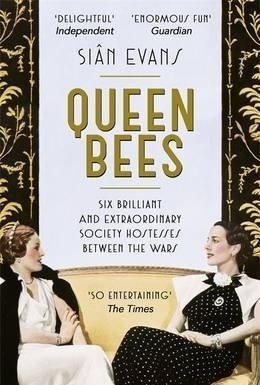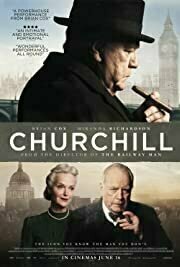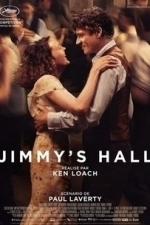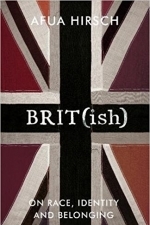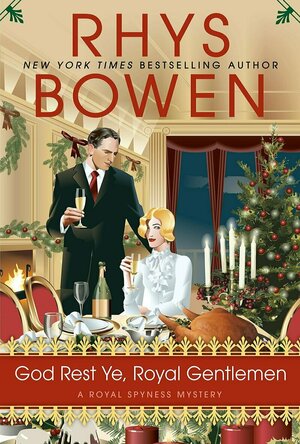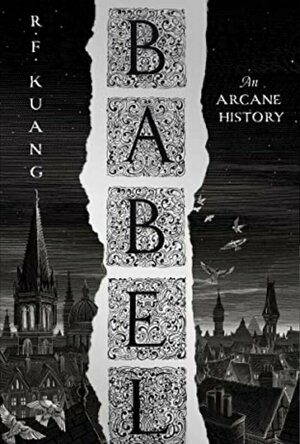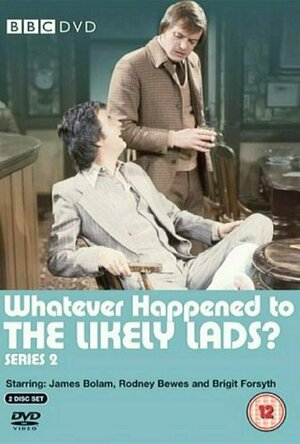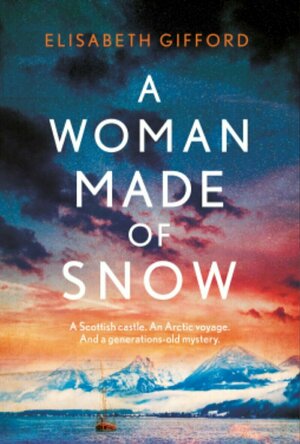Search
Search results
<i>I received this book for free through Goodreads First Reads.</i>
A spectacle of celebrity, talent and burning ambition, <i>Queen Bees</i> combines the biographical stories of six ambitious women who helped to shape the standards of British society between the two world wars. Londoner Siân Evans is a cultural historian who has previously worked with the <i>Victoria and Albert Museum, National Trust </i>and <i>Design Museum</i>, and takes great lengths to thoroughly research into her written subject in order to portray a highly accurate insight to the lives of historical figures. Due to the non-existent political status of women in the early 1900s, the women featured in this book are virtually unknown today, yet they had a great impact during the 20s and 30s and helped to shape the Britain of today.
Although not necessarily born into it, circumstances such as marriage meant these six women were regarded as upper class. In no particular order, the names impacting on the social revolution and thus featured in <i>Queen Bees</i> are as follows: Lady Nancy Astor, the first female MP; Lady Sybil Colefax, who became a friend of Edward VIII; Lady Emerald Cunard, also connected with the royal family; Mrs. Ronnie Greville, a rather formidable woman; Lady Edith Londonderry, the founder of the Women’s Legion; and Laura Corrigan, the youngest of the set. Evans talks the reader through these women’s careers as professional hostesses as they compete to throw the better party, entertaining famous writers and actors as well as members of royalty, both national and foreign.
What is perhaps the most interesting, and indeed the most worth learning, is the way a couple of these women altered the future of the British monarchy. Without their interference the future George VI would never have married Elizabeth Bowes-Lyon, and without their involvement in the relationship between Edward VIII and Wallis Simpson, George VI would never have come to the throne. This is such an important aspect of British history that has been widely left out and ignored. Without these hostesses influence we would all be experiencing a slightly different life.
In terms of the actual writing, Siân Evans manages fairly well to engage the reader as she relates the factual story in a more or less chronological way. A slight issue is the quick, often undetected, move from one woman to the next, resulting in a lot of confusion about who is who particularly at the beginning of the book. A lot of the narrative features other key figures from the same period and often moves away from the main characters, which, whilst interesting, is not what the reader necessarily expected from a book whose title <i>Queen Bees</i> suggested it was only going to be about the women’s lives.
Footnotes, quotes and extracts from letters and diaries help to make the book appear reliable, factual and believable. Some of the content, without back up, would have seemed rather fanciful or exaggerated. <i>Queen Bees</i> can be read as a source of entertainment or as a citation for historical research. What is found within these pages is a more unbiased account of the early twentieth century than would be found in numerous male dominated history textbooks.
Mature readers of all ages are likely to gain something from reading <i>Queen Bees</i> – pleasure, knowledge etc., however it is most likely to appeal to the contemporary feminist. With this in mind, be aware that the six hostesses were not feminists of their time; they were not involved in Suffragette movements and were fairly content to live off money earned by their husbands or fathers. Yet, on the other hand, they impacted on the future of Britain as much as the male politicians of the time. Highly political in content, <i>Queen Bees </i>is worth reading to discover our own history, but be prepared for initial confusion over who is who and rather lengthy paragraphs.
A spectacle of celebrity, talent and burning ambition, <i>Queen Bees</i> combines the biographical stories of six ambitious women who helped to shape the standards of British society between the two world wars. Londoner Siân Evans is a cultural historian who has previously worked with the <i>Victoria and Albert Museum, National Trust </i>and <i>Design Museum</i>, and takes great lengths to thoroughly research into her written subject in order to portray a highly accurate insight to the lives of historical figures. Due to the non-existent political status of women in the early 1900s, the women featured in this book are virtually unknown today, yet they had a great impact during the 20s and 30s and helped to shape the Britain of today.
Although not necessarily born into it, circumstances such as marriage meant these six women were regarded as upper class. In no particular order, the names impacting on the social revolution and thus featured in <i>Queen Bees</i> are as follows: Lady Nancy Astor, the first female MP; Lady Sybil Colefax, who became a friend of Edward VIII; Lady Emerald Cunard, also connected with the royal family; Mrs. Ronnie Greville, a rather formidable woman; Lady Edith Londonderry, the founder of the Women’s Legion; and Laura Corrigan, the youngest of the set. Evans talks the reader through these women’s careers as professional hostesses as they compete to throw the better party, entertaining famous writers and actors as well as members of royalty, both national and foreign.
What is perhaps the most interesting, and indeed the most worth learning, is the way a couple of these women altered the future of the British monarchy. Without their interference the future George VI would never have married Elizabeth Bowes-Lyon, and without their involvement in the relationship between Edward VIII and Wallis Simpson, George VI would never have come to the throne. This is such an important aspect of British history that has been widely left out and ignored. Without these hostesses influence we would all be experiencing a slightly different life.
In terms of the actual writing, Siân Evans manages fairly well to engage the reader as she relates the factual story in a more or less chronological way. A slight issue is the quick, often undetected, move from one woman to the next, resulting in a lot of confusion about who is who particularly at the beginning of the book. A lot of the narrative features other key figures from the same period and often moves away from the main characters, which, whilst interesting, is not what the reader necessarily expected from a book whose title <i>Queen Bees</i> suggested it was only going to be about the women’s lives.
Footnotes, quotes and extracts from letters and diaries help to make the book appear reliable, factual and believable. Some of the content, without back up, would have seemed rather fanciful or exaggerated. <i>Queen Bees</i> can be read as a source of entertainment or as a citation for historical research. What is found within these pages is a more unbiased account of the early twentieth century than would be found in numerous male dominated history textbooks.
Mature readers of all ages are likely to gain something from reading <i>Queen Bees</i> – pleasure, knowledge etc., however it is most likely to appeal to the contemporary feminist. With this in mind, be aware that the six hostesses were not feminists of their time; they were not involved in Suffragette movements and were fairly content to live off money earned by their husbands or fathers. Yet, on the other hand, they impacted on the future of Britain as much as the male politicians of the time. Highly political in content, <i>Queen Bees </i>is worth reading to discover our own history, but be prepared for initial confusion over who is who and rather lengthy paragraphs.
Bob Mann (459 KP) rated Churchill (2017) in Movies
Sep 29, 2021
“We will bore them on the beaches”.
“Churchill” tells the story of the great leader’s extreme opposition to “Operation Overlord”, the Eisenhower-led invasion of Normandy in 1944 that ultimately led – more by luck that judgement perhaps – to the fall of the Third Reich in the following year.
I’m not a historian but am married to one, so know the importance of “sources” in the pursuit of “truth”: one man’s terrorist is after all another man’s freedom fighter from a different perspective. Some sources on the internet (here for example) certainly suggest the The British (led by Churchill as Prime Minister) might have sensibly promoted the acceleration of the Italian campaign to reach Berlin rather than the far riskier Channel crossing.
This film however paints Churchill as a man demonised by his decision to send young men to their deaths in the fateful Gallipoli beach landings of World War One, with this – rather than a sensible strategic one – being the primary reason for opposing the Normandy landings. To further paint him as a bumbling old fool that is “worked around” by his peers strikes you as borderline libellous.
So the film’s script, by novice Alex von Tunzelmann, immediately set the wrong tone with me, and the undeniably strong performances of Brian Cox (“The Bourne Identity”) as Churchill and the wonderful Miranda Richardson (“Harry Potter” and the soon to be released “Stronger”) as Clemmie can’t fill the gap.
Besides anything else, diretor Jonathan Teplitzky (“The Railway Man”) delivers a piece so dull and lifeless, and with so much brooding, that its not remotely enjoyable. You think the introduction of a bullied secretary – Ms Garrett (Ella Purnell) – with a strong personal connection to ‘Overlord’ will add dramatic colour? But this angle too seems to go nowhere in particular.
There are many tales of the Normandy landings that are fascinating, over and above the dramatic sweep of “The Longest Day” (which is surely well overdue for a remake?) and Spielberg’s fictionalisation of the Niland brothers in “Saving Private Ryan”. How about the 2 out of 29 American amphibious tanks that reached Omaha beach after ignoring British advice to not launch so far from shore in rough seas?
So, as a film, it might be “worthy”. But I didn’t remotely believe the depiction of Churchill and it astonished me that such a rivetingly exciting period of British history could deliver a film that bored me. So, sorry, can’t recommend this one. Perhaps Joe Wright will have a better go with Gary Oldman as Churchill in “Darkest Hour”…
I’m not a historian but am married to one, so know the importance of “sources” in the pursuit of “truth”: one man’s terrorist is after all another man’s freedom fighter from a different perspective. Some sources on the internet (here for example) certainly suggest the The British (led by Churchill as Prime Minister) might have sensibly promoted the acceleration of the Italian campaign to reach Berlin rather than the far riskier Channel crossing.
This film however paints Churchill as a man demonised by his decision to send young men to their deaths in the fateful Gallipoli beach landings of World War One, with this – rather than a sensible strategic one – being the primary reason for opposing the Normandy landings. To further paint him as a bumbling old fool that is “worked around” by his peers strikes you as borderline libellous.
So the film’s script, by novice Alex von Tunzelmann, immediately set the wrong tone with me, and the undeniably strong performances of Brian Cox (“The Bourne Identity”) as Churchill and the wonderful Miranda Richardson (“Harry Potter” and the soon to be released “Stronger”) as Clemmie can’t fill the gap.
Besides anything else, diretor Jonathan Teplitzky (“The Railway Man”) delivers a piece so dull and lifeless, and with so much brooding, that its not remotely enjoyable. You think the introduction of a bullied secretary – Ms Garrett (Ella Purnell) – with a strong personal connection to ‘Overlord’ will add dramatic colour? But this angle too seems to go nowhere in particular.
There are many tales of the Normandy landings that are fascinating, over and above the dramatic sweep of “The Longest Day” (which is surely well overdue for a remake?) and Spielberg’s fictionalisation of the Niland brothers in “Saving Private Ryan”. How about the 2 out of 29 American amphibious tanks that reached Omaha beach after ignoring British advice to not launch so far from shore in rough seas?
So, as a film, it might be “worthy”. But I didn’t remotely believe the depiction of Churchill and it astonished me that such a rivetingly exciting period of British history could deliver a film that bored me. So, sorry, can’t recommend this one. Perhaps Joe Wright will have a better go with Gary Oldman as Churchill in “Darkest Hour”…
Gareth von Kallenbach (980 KP) rated Jimmy's Hall (2015) in Movies
Aug 6, 2019
It’s not to often that we folks in America have the opportunity to catch any movies from Ireland.
The few that do come along almost certainly rate high on the scale of exceptional movies that one would want to see. I myself can’t remember a ‘bad’ Irish film. Perhaps one of the reasons for that is the fact that this country has a solid history of countless Irish immigrants coming here and helping to build the foundations for America. Well, today’s film for your consideration doesn’t go back THAT far. It doesn’t even take place in America. However, the history of Irish immigrants (specifically one immigrant) does play a role. Only it involves an Irish immigrant how came to America and then several years later returned to Ireland only to be forcibly deported back to America. I know I know. That explanation makes it sound like a comedy and although the film has many lighthearted moments, I can assure you it’s NOT a comedy. In fact, it deals with an influential figure in one of the more politically turbulent periods in Ireland’s history just before the beginning of the Second World War.
‘Jimmy’s Hall’ is a 2014 Irish-British drama directed by English television and film director Kenneth ‘Ken’ Loach. The film focuses on the events leading up to the deportation from Ireland of Jimmy Gralton, who led a precursor to Ireland’s communist party in the county Leitrim.
Starring Barry Ward, Simone Kirby, and Irish character actor Jim Norton, the film opens in 1932. Jimmy (Ward) has just returned to his home to help his mother tend the family farm after spending 10 years in the United States in the midst of the Great Depression coinciding with the establishment of a new government in the aftermath of the Civil War between pro-British and anti-British forces.
Reluctant to anger his old enemies, the church and the landowners who forced him to leave Ireland, but eager to meet the needs of the people of Leitrim, Jimmy (Ward) decides to reopen the ‘Hall’, a center for young people where they can meet to study, talk, dance, play music, learn to read, debate issues of the day. Free to all and open to anyone who wishes to learn while respecting the views and opinions of others, the ‘Hall’ is an immediate success. Not everyone is pleased to see Jimmy resuming his old activities. In particular the church and local priest (Norton) who see Gralton as not only a ‘bad influence’, but also as a follower of Stalin who as history knows sent countless millions (including religious leaders) to their deaths.
Despite the complaints and at times violent reactions on the part of the supporters of the church and the landowners, Gralton tries desperately to make them realize he has absolutely no connection to Stalin and has no desire to bring down the church. Only to better the situation for everyone. Jimmy even invites the local priest to take a leadership role in the Hall’s committee. In the end though, the fears of the church and the state go unchanged. Jimmy is a communist and although he has no connection Stalin the church and the government see them as one in the same. The police take Jimmy into custody at his family’s farm and forcibly deport him back to America even so much as denying him on last chance to see his ailing mother.
In education systems there are books and films which are considered ‘required reading’ or in this case ‘required viewing’. This film should be required viewing. It is not just an excellent film about a historical Irish political figure or as I mentioned earlier a film about a turbulent point in Irish history. It’s an example of the greater ‘world conflict’ between what became the western bloc and the eastern bloc. Both sides in that grater conflict saw each other the same way the two sides in the Irish countryside of the 1930s saw each other. The ones that meant well and only wanted to better the situation for everyone including themselves inspired fear in those who had power and those who had the power inspired fear in those who meant well. This movie showed that not all political figures are evil … nor are all religious figures. It’s the individual or several individuals within those groups that are reluctant to change.
I would highly recommend this film. Regardless of the content it’s an excellent film. If this film is as good as most films made in Ireland, they definitely need to start exporting them on a grander scale. I’d give this film 4 out of 5 stars.
This is your friendly neighborhood photographer ‘The CameraMan’ and on behalf of my fellows at ‘Skewed & Reviewed’ I’d like to say thanks for reading and we’ll see you at the movies
The few that do come along almost certainly rate high on the scale of exceptional movies that one would want to see. I myself can’t remember a ‘bad’ Irish film. Perhaps one of the reasons for that is the fact that this country has a solid history of countless Irish immigrants coming here and helping to build the foundations for America. Well, today’s film for your consideration doesn’t go back THAT far. It doesn’t even take place in America. However, the history of Irish immigrants (specifically one immigrant) does play a role. Only it involves an Irish immigrant how came to America and then several years later returned to Ireland only to be forcibly deported back to America. I know I know. That explanation makes it sound like a comedy and although the film has many lighthearted moments, I can assure you it’s NOT a comedy. In fact, it deals with an influential figure in one of the more politically turbulent periods in Ireland’s history just before the beginning of the Second World War.
‘Jimmy’s Hall’ is a 2014 Irish-British drama directed by English television and film director Kenneth ‘Ken’ Loach. The film focuses on the events leading up to the deportation from Ireland of Jimmy Gralton, who led a precursor to Ireland’s communist party in the county Leitrim.
Starring Barry Ward, Simone Kirby, and Irish character actor Jim Norton, the film opens in 1932. Jimmy (Ward) has just returned to his home to help his mother tend the family farm after spending 10 years in the United States in the midst of the Great Depression coinciding with the establishment of a new government in the aftermath of the Civil War between pro-British and anti-British forces.
Reluctant to anger his old enemies, the church and the landowners who forced him to leave Ireland, but eager to meet the needs of the people of Leitrim, Jimmy (Ward) decides to reopen the ‘Hall’, a center for young people where they can meet to study, talk, dance, play music, learn to read, debate issues of the day. Free to all and open to anyone who wishes to learn while respecting the views and opinions of others, the ‘Hall’ is an immediate success. Not everyone is pleased to see Jimmy resuming his old activities. In particular the church and local priest (Norton) who see Gralton as not only a ‘bad influence’, but also as a follower of Stalin who as history knows sent countless millions (including religious leaders) to their deaths.
Despite the complaints and at times violent reactions on the part of the supporters of the church and the landowners, Gralton tries desperately to make them realize he has absolutely no connection to Stalin and has no desire to bring down the church. Only to better the situation for everyone. Jimmy even invites the local priest to take a leadership role in the Hall’s committee. In the end though, the fears of the church and the state go unchanged. Jimmy is a communist and although he has no connection Stalin the church and the government see them as one in the same. The police take Jimmy into custody at his family’s farm and forcibly deport him back to America even so much as denying him on last chance to see his ailing mother.
In education systems there are books and films which are considered ‘required reading’ or in this case ‘required viewing’. This film should be required viewing. It is not just an excellent film about a historical Irish political figure or as I mentioned earlier a film about a turbulent point in Irish history. It’s an example of the greater ‘world conflict’ between what became the western bloc and the eastern bloc. Both sides in that grater conflict saw each other the same way the two sides in the Irish countryside of the 1930s saw each other. The ones that meant well and only wanted to better the situation for everyone including themselves inspired fear in those who had power and those who had the power inspired fear in those who meant well. This movie showed that not all political figures are evil … nor are all religious figures. It’s the individual or several individuals within those groups that are reluctant to change.
I would highly recommend this film. Regardless of the content it’s an excellent film. If this film is as good as most films made in Ireland, they definitely need to start exporting them on a grander scale. I’d give this film 4 out of 5 stars.
This is your friendly neighborhood photographer ‘The CameraMan’ and on behalf of my fellows at ‘Skewed & Reviewed’ I’d like to say thanks for reading and we’ll see you at the movies
Suswatibasu (1703 KP) rated Brit(ish): On Race, Identity and Belonging in Books
Mar 11, 2018
An important and necessary conversation
There is a wealth of insight crammed into this book about race and identity in Britain, describing how important it is to have a cohesive self by accepting that you may have other identities alongside being a UK citizen.
What hinders this process is the apparent racism that plagues British society, from being 'colour-blind' and thus ignoring the issue, to the awkward and troubled relationship with Britain's history and its origins. The author, Afua Hirsch, also discovers her own Ghanaian roots throughout her journey of self-awareness, making this book both a memoir and social commentary. Hirsch checks her privilege immediately, which makes a refreshing change.
While I can completely relate to her opinions on the racist structures in place and the microagressions that have become normalised, the historical and anthropological elements were the most fascinating parts for me. Learning about the racist views upheld by leading western thinkers such as Immanuel Kant and David Huhne, as well as how the 1919 race riots ensued over the perception of 'white cleansing' was deeply concerning.
Hirsch's call for change on Britain's selective amnesia is not new but it has a contemporary angle following the country's move to leave the EU. Incredibly engaging.
What hinders this process is the apparent racism that plagues British society, from being 'colour-blind' and thus ignoring the issue, to the awkward and troubled relationship with Britain's history and its origins. The author, Afua Hirsch, also discovers her own Ghanaian roots throughout her journey of self-awareness, making this book both a memoir and social commentary. Hirsch checks her privilege immediately, which makes a refreshing change.
While I can completely relate to her opinions on the racist structures in place and the microagressions that have become normalised, the historical and anthropological elements were the most fascinating parts for me. Learning about the racist views upheld by leading western thinkers such as Immanuel Kant and David Huhne, as well as how the 1919 race riots ensued over the perception of 'white cleansing' was deeply concerning.
Hirsch's call for change on Britain's selective amnesia is not new but it has a contemporary angle following the country's move to leave the EU. Incredibly engaging.
Mark @ Carstairs Considers (2346 KP) rated God Rest Ye, Royal Gentlemen in Books
Oct 13, 2021
Royal Intrigue at Christmas
Lady Georgiana and Darcy are looking forward to their first Christmas as husband and wife, but then they are invited to spend the holiday at a house party being given by one of Darcy’s aunts. The implication that the queen herself wants them nearby is the only thing that makes them go. When they arrive, they learn the queen is worried someone is after a member of her family. Can Georgie figure out what is going on in time?
Fans of the series will expect that the book will get off to a slow start as we get updates on the various supporting characters we’ve gotten to know over the series. While we get hits of the plot, celebrating Christmas also slows the pacing down a little. But there is a good mystery in there, and I didn’t have the how or who figured out until Georgie pieced it to together. The end of 1935 was a huge time in British history, and I loved how the real intrigue played into this story, weaving in things we’ve been reading about since book one. This is a Christmas fans will definitely be glad they spent with Georgie.
Fans of the series will expect that the book will get off to a slow start as we get updates on the various supporting characters we’ve gotten to know over the series. While we get hits of the plot, celebrating Christmas also slows the pacing down a little. But there is a good mystery in there, and I didn’t have the how or who figured out until Georgie pieced it to together. The end of 1935 was a huge time in British history, and I loved how the real intrigue played into this story, weaving in things we’ve been reading about since book one. This is a Christmas fans will definitely be glad they spent with Georgie.
BookwormMama14 (18 KP) rated The World of Downton Abbey in Books
Jan 2, 2019
I admit that I have a slight obsession with Downton Abbey. It sucked me in from the start. And now my curiosity as piqued as to what life was really like in the early 1900s. Therefore, I am branching out a bit in the books that I am reading.
The World of Downton Abbey is a companion guide to the second season of the beloved BBC Masterpiece show Downton Abbey. Not only does it outline the lives of the Crawley family during the first World War, but also gives us a peek at the lives of the real aristocracy of England. Family life, style, life in service, romance and war are a few of the topics covered in Jessica Fellowes book.
I greatly enjoyed reading and learning more about British culture. It helps me to understand the characters in the show better, as well as characters in the books I read. There is a lot of history to be found in period dramas and I do love learning about it. I was happy to learn that the show has a historical advisor Alastair Bruce (known as The Oracle) that does not hide in the shadows. He makes certain that everything is proper and accurate. Any Downton enthusiast would enjoy this book, but it is also a great read for learning more about the era.
The World of Downton Abbey is a companion guide to the second season of the beloved BBC Masterpiece show Downton Abbey. Not only does it outline the lives of the Crawley family during the first World War, but also gives us a peek at the lives of the real aristocracy of England. Family life, style, life in service, romance and war are a few of the topics covered in Jessica Fellowes book.
I greatly enjoyed reading and learning more about British culture. It helps me to understand the characters in the show better, as well as characters in the books I read. There is a lot of history to be found in period dramas and I do love learning about it. I was happy to learn that the show has a historical advisor Alastair Bruce (known as The Oracle) that does not hide in the shadows. He makes certain that everything is proper and accurate. Any Downton enthusiast would enjoy this book, but it is also a great read for learning more about the era.
ClareR (5879 KP) rated Babel: An Arcane History in Books
Feb 14, 2023
Babel is a college in Oxford - the Royal Institute of Translation - where all of the languages in the world are spoken and learnt about. It’s also where all the power of the British Empire originates from. But not in the way that you would think.
Robin Swift is brought to England by a mysterious Englishman after he is orphaned in Canton. The Englishman educates him, and then sends Robin to Babel to continue his studies. But is Babel everything that Robin wants or expects it to be?
This truly imaginative novel looks at colonialism, the power of language, resistance and sacrifice.
I loved the narration as well, it really added to the story, I felt, particularly the footnotes that were inserted into the rest of the dialogue explaining pronunciation and etymology (I really liked these parts, more than is normal or socially acceptable, probably! 🤭). I’ll admit that there were some mispronunciations of the Oxford colleges which would have been easy to avoid (I have to admit to mainly learning how to pronounce them by watching University Challenge 😆).
If you love language, languages (I do!), fantasy and an alternative history, then this will really appeal to you.
I do feel that I should have finished the book having learnt at least one more language though. Ah well 🤷🏼♀️
Robin Swift is brought to England by a mysterious Englishman after he is orphaned in Canton. The Englishman educates him, and then sends Robin to Babel to continue his studies. But is Babel everything that Robin wants or expects it to be?
This truly imaginative novel looks at colonialism, the power of language, resistance and sacrifice.
I loved the narration as well, it really added to the story, I felt, particularly the footnotes that were inserted into the rest of the dialogue explaining pronunciation and etymology (I really liked these parts, more than is normal or socially acceptable, probably! 🤭). I’ll admit that there were some mispronunciations of the Oxford colleges which would have been easy to avoid (I have to admit to mainly learning how to pronounce them by watching University Challenge 😆).
If you love language, languages (I do!), fantasy and an alternative history, then this will really appeal to you.
I do feel that I should have finished the book having learnt at least one more language though. Ah well 🤷🏼♀️
BookwormMama14 (18 KP) rated Just the Way You Are (Pleasant Gap Romance #1) in Books
Jan 2, 2019
Just the Way You Are is more than just a good book. It is a modern day fairytale filled with redemption and grace that will capture your heart from the first moment. Within the pages of this book you will find real people, with real life issues. This story will sweep you off your feet and drag you into a world that is every nerd girl's fantasy and you will soon find yourself consumed with researching history, "treasure" hunting, chocolate, British accents, Appalachia, AND.........Kisses.
Chocolate kisses, closet kisses, abandoned tower kisses, leave you senseless kisses...This book is PACKED with such romance that you may need to take precautionary actions to prevent injury from fainting! (such as a fainting couch, fan, smelling salts, etc.)
Don't let the passion fool you though. Pepper writes such sweet, unadulterated romance coupled with complete and total redemption. It blows my mind every single time I read one of her books. Just the Way You Are is the first contemporary novel I have read of Pepper's, and this easily makes it to the top of my favorite Rom Com stories EVER. I wish to see this in movie form so badly! "Ghirardelli in human form"...yes please! Haha!
The adventure, the romance, the grace...all woven together creates a beautiful masterpiece.
I received a complimentary copy of Just the Way You Are. I was not required to write a positive review. All opinions expressed are mine alone.
Chocolate kisses, closet kisses, abandoned tower kisses, leave you senseless kisses...This book is PACKED with such romance that you may need to take precautionary actions to prevent injury from fainting! (such as a fainting couch, fan, smelling salts, etc.)
Don't let the passion fool you though. Pepper writes such sweet, unadulterated romance coupled with complete and total redemption. It blows my mind every single time I read one of her books. Just the Way You Are is the first contemporary novel I have read of Pepper's, and this easily makes it to the top of my favorite Rom Com stories EVER. I wish to see this in movie form so badly! "Ghirardelli in human form"...yes please! Haha!
The adventure, the romance, the grace...all woven together creates a beautiful masterpiece.
I received a complimentary copy of Just the Way You Are. I was not required to write a positive review. All opinions expressed are mine alone.
Versusyours (757 KP) rated Whatever Happened to the Likely Lads in TV
Nov 5, 2019
Clever writing (2 more)
Relatable characters
Social history
A snapshot of changing social attitudes and relationships in Britain during the 1970s
A continuation of the earlier series The Likely Lads sees the changes in outlooks on life during the early 1970s and the world that is changing around them. Terry returns from the Army with a lack of a world view and a divorced whilst Bob is engaged and has entered the property ladder with lesuire activities and tastes to match. The two friends are both searching for answers about how they fit into a world that is moving to fast, does Bob want the life he is working towards? Is a Terry happy to be stuck in his ways and be skeptical of any change? The episodes are well written and show the way in which young people at the time were struggling to move away from the way there parents lived their lives and the changes that were a result of a more permissive society. The problems of the 1970s are still in essence the same worries that we still see today and the dynamics between the 2 main characters are played so well due to the clever writing and the continuing storyline that runs through the 2 seasons.
A great slice of British life from the period that has aged well due to the human elements of the relationships and the lack of understanding of the path that life is taking you on.
A great slice of British life from the period that has aged well due to the human elements of the relationships and the lack of understanding of the path that life is taking you on.
ClareR (5879 KP) rated A Woman Made of Snow in Books
Nov 9, 2021
A Woman Made Of Snow is a book steeped in the history of the Gillan family, which automatically ticks a lot of boxes for me. This is a dual timeline story: Scotland in 1949, and the Arctic at some time in the mid 1800s.
Caro and Alasdair marry after the War and move back to his family home - Kelly Castle in Scotland. Caro has high hopes of continuing to work in a university, but motherhood puts pay to that, and instead decides to look into the Gillan family genealogy, and specifically the mysterious disappearance of Alasdair’s great grandmother. When Caro finds the remains of a diary, there are some startling findings.
We flash back and forth between 1949 and the 1800s, where the information missing from the diary is more clearly explained. When a body is unearthed after flooding, this poses more questions about he person’s identity. Is this the missing relative?
I absolutely loved this. The descriptions of the sea, the Arctic tundra and the Inuit who lived there, fascinated me. Less pleasant were the attitudes of the British towards other cultures, but this was interesting, all the same. The changing roles of women was portrayed well. Whilst not the same as our lives today, Caro’s life in the 1940’s/ 50’s was markedly better than that of the women in the 1800s.
This was such an enjoyable read - highly recommended.
Thanks to The Pigeonhole for serialising this wonderful book.
Caro and Alasdair marry after the War and move back to his family home - Kelly Castle in Scotland. Caro has high hopes of continuing to work in a university, but motherhood puts pay to that, and instead decides to look into the Gillan family genealogy, and specifically the mysterious disappearance of Alasdair’s great grandmother. When Caro finds the remains of a diary, there are some startling findings.
We flash back and forth between 1949 and the 1800s, where the information missing from the diary is more clearly explained. When a body is unearthed after flooding, this poses more questions about he person’s identity. Is this the missing relative?
I absolutely loved this. The descriptions of the sea, the Arctic tundra and the Inuit who lived there, fascinated me. Less pleasant were the attitudes of the British towards other cultures, but this was interesting, all the same. The changing roles of women was portrayed well. Whilst not the same as our lives today, Caro’s life in the 1940’s/ 50’s was markedly better than that of the women in the 1800s.
This was such an enjoyable read - highly recommended.
Thanks to The Pigeonhole for serialising this wonderful book.
